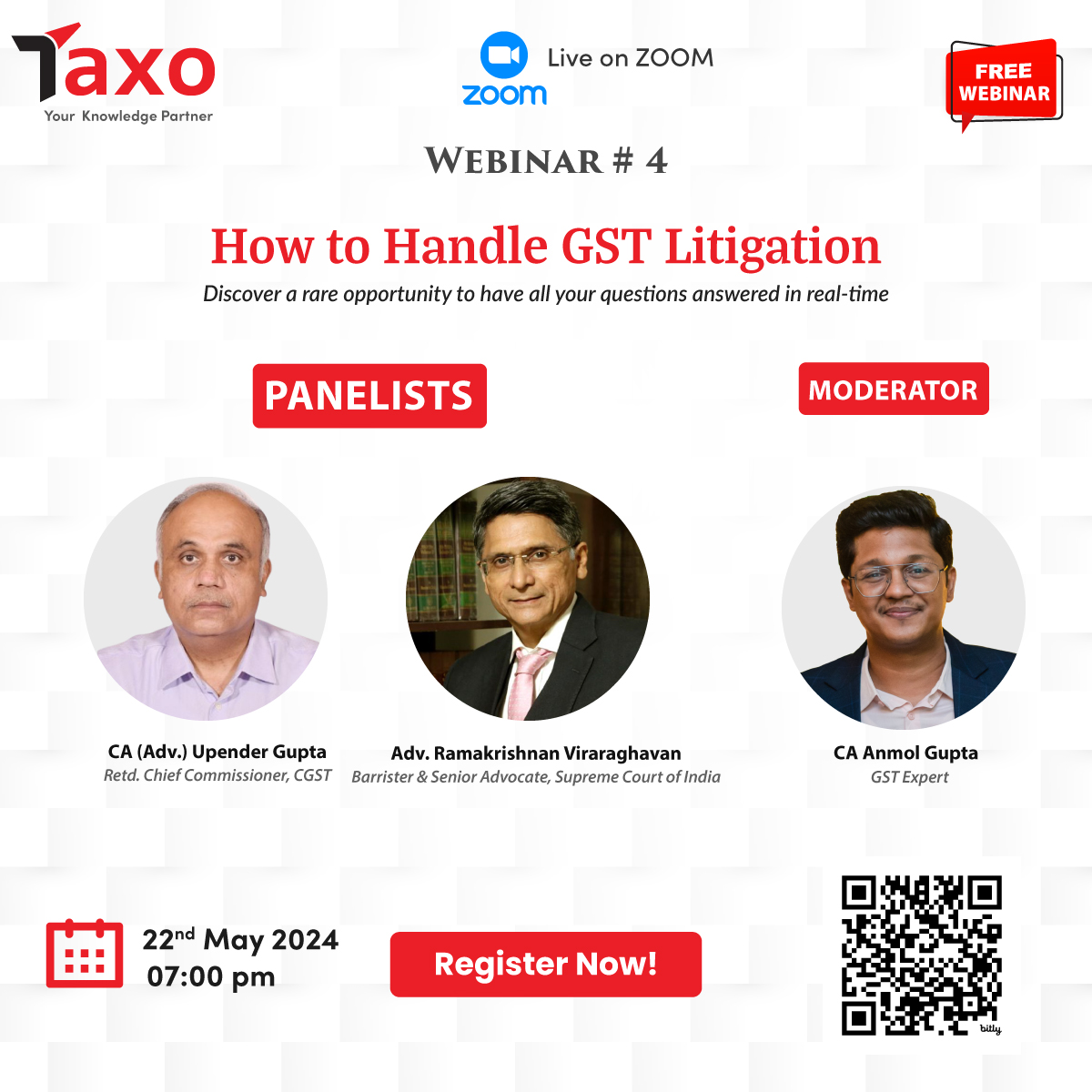In the case of Greenwood Owners Association vs Union of India [2021] 128 taxmann.com 182 (Delhi), the petitioner being Resident Welfare Associations (RWA) challenged an order of Authority for Advance Ruling (AAR) levying tax on entirety of contribution. Circular No. 109/28/2019 dated 22-7-2019 was also challenged on the same issue as to whether the resident in that RWA would lose the entitlement to exemption altogether if the amount of contribution exceeds Rs 7500 or whether the exemption would still continue to be available upto to a sum of Rs. 7,500/- and only the difference (excess) becoming eligible to tax.
Clause (c) of entry no. 77 of Notification No. 12/2017-Central Tax (Rate), dated 28-6-2017 provides exemption for the Service by an unincorporated body or a non-profit entity registered under any law for the time being in force, to its own members by way of reimbursement of charges or share of contribution up to an amount of five thousand rupees per month (Amended to Rs. 7,500/- vide Notification No. 2/18 dated 25-1-2018) per member for sourcing of goods or services from a third person for the common use of its members in a housing society or a residential complex.
The AAR, by impugned order dated 21-6-2019, held adverse stating that the grant of exemption was conditional upon the contribution being an amount of Rs. 7,500/- or less. If the contribution exceeded the sum of Rs. 7,500/-, then the entitlement of exemption would stand defeated and the entirety of the amount collected would be taxable. The same is being mentioned in the Circular No. 109/28/2019-GST.
The petitioner argued that the interpretation is contrary to the express language of the exemption granted. Emphasis is placed on the use of the phrase ‘upto’ in the relevant entry stating that the grant of exemption was for contribution upto Rs. 7,500/- and this entitlement remained constant notwithstanding any change in the amount of contribution.
The Entry in question is compared with other entries granting exemptions. The difference in language is emphasized in bold.
- No.47 of Notification 25/2012 ST Dt.20-6-2012 – Services by way of right to admission to,-……….award function, concert, pageant, musical performance or any sporting event other than a recognised sporting event, where the consideration for admission is not more than Rs. 500 per person.”
- No 78 of Notification No. 12/2017 dated 28-6-2017 – Services by an artist by way of a performance in folk or classical art forms of-
- Music, or
- Dance, or
- Theatre,
If the consideration charged for such performance is not more than one lakh and fifty thousand rupees. The categorization of ‘artist’ is on the basis of the earning of the artist. The intention is clear, to exempt only such consideration, which is below Rs. 1.50 lakhs. If the consideration exceeds Rs. 1.50 lakhs by even a rupee, the artist will not be eligible for the exemption.
- No.56 of Notification 25/2012 – Services provided by Government or a local authority where the gross amount charged for such services does not exceed Rs. 5000/- :
Provided further that in case where continuous supply of service, as defined in clause (c) of rule 2 of the Point of Taxation Rules, 2011, is provided by the Government or a local authority, the exemption shall apply only where the gross amount charged for such service does not exceed Rs. 5000/- in a financial year;
A reading of the above extracts indicates the difference in language adopted by the revenue in the matter of grant of exemptions. In a case where legislature intended that the exemption shall apply only to cases where the amount charged does not exceed a specified pecuniary limit, it states as much, as can be seen from the language deployed in the proviso to clause 56 in Notification 25 of 2012 where it is stated ‘the exemption shall apply only where the gross amount charged for such service does not exceed Rs. 5,000/- in a financial.
The plain words employed in Entry 77 being, ‘upto’ an amount of Rs. 7,500/- can thus only be interpreted to state that any contribution in excess of the same would be liable to tax. The term ‘upto’ hardly needs to be defined and connotes an upper limit. It is interchangeable with the term ’till’ and means that any amount till the ceiling of Rs. 7,500/- would exempt for the purposes of GST.
The discussion as above leaves no doubt that the conclusion of the AAR as well as the Circular to the effect that any contribution above Rs. 7,500/- would disentitle the RWA to exemption, is contrary to the express language of the Entry in question and both stand quashed and the petitioner was allowed the writ petition. To clarify, it is only contributions to RWA in excess of Rs. 7,500/- that would be taxable under GST Act.


